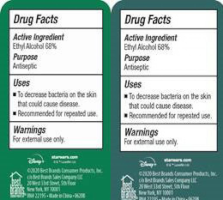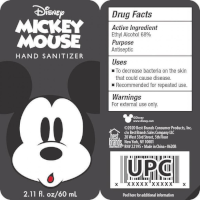
THIS SECTION IS FOR NEWS AND INTERESTING STORIES RELATED TO FOOD, NUTRITION AND FOOD PROCESSING. THEY ARE NOT NECESSARILY RELATED TO KOSHER BUT MAY BE OF INTEREST TO THE KOSHER CONSUMER, MANUFACTURER OR MASHGIACH.
March 31, 2022 - from the NY Attorney General
"New York Attorney General Letitia James today issued a consumer alert urging New Yorkers to be mindful of potential discriminatory pricing practices at car washes in the days leading up to Passover. In previous years, there have been reports of car wash businesses in predominantly Orthodox Jewish communities in New York City raising prices by as much as 50 percent for Jewish customers seeking cleaning services close to Passover. In advance of Passover, many Jews clean their homes, cars, and other spaces to remove “chametz,” or leavened products, from these spaces because they are not eaten for the duration of the holiday. According to reports provided to the Office of Attorney General (OAG) from Assemblymember Simcha Eichenstein, some companies have advertised “specials” for car washing services related to Passover, but instead, charged higher prices to Jewish customers. Attorney General James also sent letters to two organizations representing car wash owners in New York to remind their members that any such business practice is illegal and should be reported to OAG.
"If you believe you were charged more for services because of your religion, race, or background, or know of businesses using these discriminatory practices, please file a complaint with OAG.



April 1, 2022 - from the FDA
Best Brands Consumer Products, Inc. is voluntarily recalling two (2) finished product lots of The Mandalorian Hand Sanitizer Ethyl Alcohol 68%, available in green and blue formulations and Mickey Mouse Hand Sanitizer Ethyl Alcohol 68% blue formulation to the consumer level. FDA testing found the presence of benzene in The Mandalorian Hand Sanitizer product and methanol in the Mickey Mouse Hand Sanitizer product. Best Brands imported these two lots, which were produced by a third-party manufacturer.
Upon being notified of the testing results by FDA in late February, 2022, Best Brands promptly investigated and determined that both of the affected lots were produced during the months of April and May, 2020 and confirmed that the affected lots had already been removed from sale in April 2021 for unrelated commercial reasons.
The Mandalorian Hand Sanitizer available in green and blue formulations and Mickey Mouse Hand Sanitizer are used to help reduce microorganisms that can potentially cause illness when regular hand hygiene measures (i.e., washing with soap and water for at least 20 seconds) are not readily available or feasible and is packaged in 2.11fl. oz/60 mL bottles. The voluntarily recalled finished product lots and expiration dates are listed in the table below. The product, which was distributed nationwide via three retail outlets, has since been removed from sale at each outlet for unrelated commercial reasons, and was not further distributed.
| Product | MFG Lot # | EXPIRE DATE | NDC # |
|---|---|---|---|
| Mickey Mouse Hand Sanitizer, Ethyl Alcohol 68%, blue color, 2.11 fl. oz bottle | 20D21 | 6/30/2022 | 74530-013-02 |
| The Mandalorian Hand Sanitizer, Ethyl Alcohol 68%, blue/green color, 2.11 fl. oz bottle | 20E21 | 9/30/2022 | 74530-012-02 |
March 31, 2022 - from JTA
"The city of Dania Beach, Florida, shut down a Jewish food distribution site which has been operating since June 2020.
"The organizer of the kosher food bank, Dovi Katz, says he serves 4,000 children and 1,500 families a week across Florida.
"The city government sent a notice to the food bank last week that read: 'Your special event application will be revoked immediately due to life safety and traffic concerns expressed by the Broward Sheriff’s office.'
"The Broward Sheriff’s Office denied being responsible for revoking the permit, instead blaming the Dania Beach government.
"Food bank organizers says that’s simply not true and that the Broward Sheriff’s Office is completely responsible for the permit having been pulled."
"'We are working to find a new location, but we plead with the Broward Sheriff to give us a week or two or three to get our new location set up,' Katz said."
March 30, 2022 - from JTA
"On Feb. 24, two shipping containers laden with 20,000 pounds of shmura matzah were slated to head out of port in Odessa, Ukraine, on their way to Orthodox Jews in the United States.
"Two hours before they were to be loaded onto a ship, Russia invaded.
"The shipment was the last of 200,000 pounds of unleavened bread that Ukrainian matzah bakeries shipped to the United States this year, in addition to what they ship to Europe and Israel.
"Now, technically outside of Ukraine’s customs zone, it could neither be returned to the country nor travel on to the United States.
"Rabbi Meyer Stambler, head of the Chabad-affiliated Federation of Jewish Communities of Ukraine, estimates that his factories in Ukraine account for about 15-20% of the U.S. market share for shmura matzah, the carefully “guarded” variety that many observant Jews prefer to use during the seder."
March 30, 2022 - from Israel National News
"A UK matzah maker has set a goal to bake one million matzahs for the Ukrainian Jewish community, who are lacking supplies for Passover, according to the Orthodox Union.
"The Orthodox Union said that the war has caused a major shortage of matzah for the community and for Jewish refugees who have fled to nearby countries.
"The Rakusen matzah factory worked 24-hours a day to bake enough matzahs to send to the community in Ukraine, the UK Jewish News reported.
"The Orthodox Union initially contacted the London Beth Din who put them in touch with Rakusen, who agreed to bake extra matzah for Passover.
"The order was for 70,000 boxes, the equivalent of about a million matzahs. The order will be ready by this Friday, with the boxes sent to Hungary and then off to Ukraine. Each box has been labelled by hand to say that it is for Jewish refugees."
March 25, 2022 - from RCBC and yeahthatskosher.com
"The Rabbinical Council of Bergen County (RCBC) has just announced that they will be revoking their kosher certification of The Humble Toast and La Cucina Di Nava, both owned by Shalom Yehudiel, who was arrested last week on grounds of sexual misconduct.
"Prior to Yehudiel’s arrest, the RCBC had decided to maintain their certification as long as Yehudiel was not present at either restaurant. After his arrest last week, the RCBC made the decision not to renew the kosher certification at both The Humble Toast and La Cucina Di Nava. The RCBC is contractually obligated to provide kosher certification through October 1st 2022 for The Humble Toast, and January 1st 2023 for La Cucina Di Nava. After these dates, the restaurants will no longer be certified by the RCBC."
Letter is here


March 21, 2022 - from FDA. The March 11, 2022 alert is here
Kao USA Conducts Voluntary Recall of Jergens® Ultra Healing Moisturizer, issued 11-Mar-2022 by Kao USA Inc. over PR Newswire, we are advised by the company that in the IDENTIFYING THE AFFECTED PRODUCTS section, two lot codes have been added to the 3 oz size section ("ZU722861" and "ZU722871"). The complete, corrected release follows:
CINCINNATI, Ohio, March 11, 2022 /PRNewswire/ -- Kao USA Inc. is asking consumers to check their Jergens® Ultra Healing Moisturizer 3 oz and 10 oz products to determine if it is part of a voluntary recall of the product.
Select units of Jergens® Ultra Healing Moisturizer could show the presence of Pluralibacter gergoviae, a bacterium which typically poses little medical risk to healthy people. However, people who have certain health problems such as weakened immune systems may be more susceptible to infections. Kao USA is urging consumers to discontinue use of the recalled lotion specified below as a precautionary measure.
The amount of recalled product is limited to two sizes offered for Jergens® Ultra Healing Moisturizer.
Only specific lots of the 3 oz and 10 oz sizes are affected. IDENTIFYING THE AFFECTED PRODUCTS
ZU712851 ZU712911
ZU712861 ZU722851
ZU712871 ZU722881
ZU712881 ZU722861
ZU722871
ZU722741 ZU732791
ZU722771 ZU732801
ZU722781 ZU732811
ZU732781 ZU732821
Anyone who has product from a recalled lot should call the Kao USA Inc. Consumer Care Center for a free product coupon at the following number: 1.800.742.8798 or send an email to: consumer@kao.com. (Hours of operation: Monday - Friday, 9AM - 5PM US ET) A postage paid label and plastic bag will be sent to consumers via mail to easily return the product.
March 22, 2022 - from Food Processing:
"Nationwide outbreaks of avian flu are disrupting chicken flocks and causing the price of eggs to rise sharply.
"Large outbreaks of highly pathogenic avian influenza (HPAI) have been reported in several states. More than 6 million chickens had to be destroyed in Iowa and 3 million in a single flock in Jefferson County, Wisc. Outbreaks were detected in 16 other states. Egg prices have risen sharply in March, which was attributed partly to the avian flu outbreaks.
"The last major outbreak of HPAI was in 2014-15, resulting in destruction of about 12% of the U.S. laying hen population. The current outbreak is not expected to be as severe due to mitigation measures among commercial layers that were not in place in 2014."
March 23, 2022 - from Kol HaOlam Twitter:
"The price of chicken is more than doubling, 3 weeks before Pesach, after chicken suppliers hiked wholesale prices; one of them, Springfield, cited "further supply issues and inflationary costs" in its memo
March 17, 2022 - from The Hill:
"A federal judge this week struck down an Iowa law that made it a crime for animal rights groups to go undercover and film potential livestock abuse on farms or other animal operations.
"The U.S. District Court for the Southern District of Iowa rejected a 2019 law, known as Ag-Gag 2.0, that created a trespassing charge — punishable by up to a year — for people deceptively gaining access to an animal operation to negatively affect operations there.
"The Animal Legal Defense Fund, one of the plaintiffs in the lawsuit, celebrated the decision in a press release, explaining the undercover investigations are vital to public debate about the treatment of animals and the quality of food production.
"The animal rights organization pointed to a graphic May 2020 video from The Intercept depicting the mass slaughtering of pigs through a ventilation shutdown. The animals were slowly cooked to death at the Iowa operation.
"In the ruling, Judge Stephanie Rose said lawmakers have a right to assess legal protections at agricultural facilities, but the legislature cannot impinge on free speech rights and bar people with a certain point of view, according to The Associated Press.
"So-called Ag-Gag laws have been struck down in Kansas, Wyoming and Utah, but Iowa has passed four similar bills since 2012, the AP noted.
"According to a copy of the lawsuit filed by the plaintiffs, Iowa lost a similar effort on a separate Ag-Gag bill in 2019 and tweaked the law that was struck down this week only slightly."




March 9, 2022 - from CPSC
Danby brand free-standing and slide-in electric and gas ranges have been recalled because the ranges can tip over when a heavy weight is placed on an open oven door and the anti-tip-over bracket is not secured to the wall or floor, posing a tip-over hazard and risk of burn injuries from hot food or liquids in cookware.
Consumer Contact: Danby Products toll-free at 877-246-2296 from 8:30 a.m. to 6 p.m. Monday through Thursday and 8:30 a.m. to 4:30 p.m. on Friday ET, or online at https://www.danby.com/en-us/support/product-recalls or at www.danby.com and click on “Product Recalls” for more information.
This recall involves free-standing and slide-in electric and gas ranges sold by Danby Products Limited. The units were sold in white, black and other finish colors. The model number is located on the oven frame or under the electric stovetop, visible after opening the door or lifting the stovetop. Only units with the below model and serial numbers are included in the recall. The gas range serial number is located on the oven frame inside the bottom drawer. The electric range serial number is located under the electric stove top. “Danby” is printed on the stove top.
| Model Number | UPC | Serial Range | Description | |
| DER202B A* | 67638015240 | HS582375P | HS582375P | DANBY 20" ELECTRIC RANGE BLACK |
| DER202W A* | 67638015233 | HS582596P | HS585704P | DANBY 20" ELECTRIC RANGE WHITE |
| DR202BGLP A* | 67638015226 | HS582436P | HS585995P | DANBY 20" GAS RANGE BLACK SOLID DOOR |
| DR202BSSGLP A* | 67638015257 | HS581458P | HS586930P | DANBY DESIGNER 20" GAS RANGE BLACK STAINLESS |
| DR202WGLP A* | 67638015219 | HS582756P | HS585076P | DANBY 20” GAS RANGE WHITE |
Remedy: Consumers should contact Danby Appliances to determine if their unit is part of the recall and to schedule a free in-home service call to inspect the recalled range’s anti-tip bracket and ensure it is securely installed in the floor or wall. Consumers are cautioned not to place any objects on the open oven door until the range’s anti-tip bracket has been inspected and repaired, if necessary. Consumers should not return the recalled ranges to the place of purchase, as retailers are not prepared to take the units back. Danby is contacting all known purchasers directly.
Sold At: Home Depot, ABC Appliance, and other appliance stores nationwide and business-to-business distributors, including Almo Distributing, Penna Inc., Home Depot Pro and Tri State Distributors from June 2021 through November 2021 for between $560 and $740.

March 7, 2022 - from FDA
Tennessee Technical Coatings Corp. is voluntarily recalling all lots of HAND SANITIZER Isopropyl Alcohol Antiseptic 75% to the consumer/user level. FDA analysis has found the product to contain methanol.
These products are used as hand sanitizers and marketed to help decrease bacteria on the skin when soap and water are not available. HAND SANITIZER Isopropyl Alcohol Antiseptic 75% is packaged in one-gallon plastic jugs. The affected HAND SANITIZER Isopropyl Alcohol Antiseptic 75% lots include the following batch numbers:
| Batch Number | Container Size | NDC |
|---|---|---|
| 00421002 | One Gallon | 76921-000-01 |
| 00422001 | One Gallon | 76921-000-01 |
| 00429001 | One Gallon | 76921-000-01 |
| 00521001 | One Gallon | 76921-000-01 |
| 00622003 | One Gallon | 76921-000-01 |
| 00806001 | One Gallon | 76921-000-01 |
The product can be identified by the representative label above. The hand sanitizer was distributed in Tennessee, USA to retail customers and to wholesale companies who further distributed between approximately April 2020 and August 2020.
Tennessee Technical Coatings is notifying its distributors and customers by letter, and telephone and is arranging for return of all recalled products. Consumers/distributors/retailers that have HAND SANITIZER Isopropyl Alcohol Antiseptic 75% which is being recalled should stop using, return to place of purchase/contact their doctor.
Consumers with questions regarding this recall can contact Tennessee Technical Coatings by calling 931-359-6666 or via the e-mail address ttchelpdesk@tntechcoatings.net Monday through Thursday 8am-5pm central standard time. Consumers should contact their physician or healthcare provider if they have experienced any problems that may be related to taking or using this drug product.
| The information posted is from secondary sources. We cannot take responsibility for the accuracy of the information. |
| Comments to webmaster@kashrut.com
© Copyright 2025 Scharf Associates |
|
|||||||||||